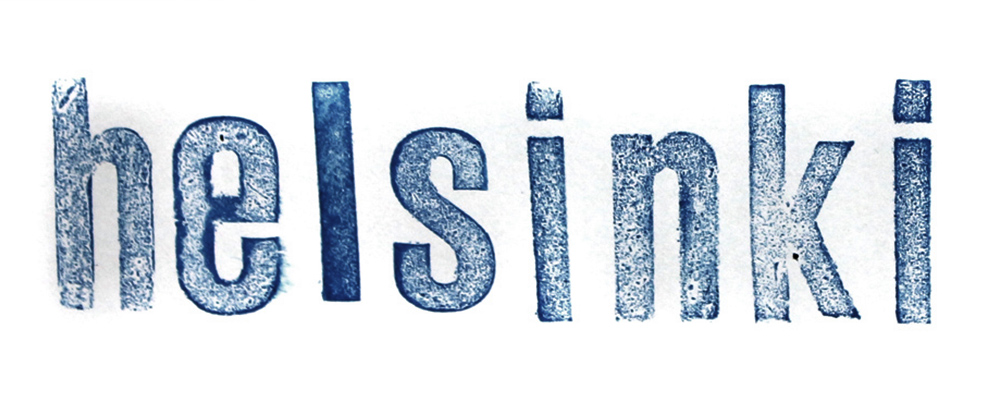
Urban Commons class in the era of Covid-19
Turning a lecture visit to a virtual exchange
Our U!REKA Lab on Urban Commons was supposed to include teachers’ visits across countries and universities during its first spring semester 2020. What happened then, is a common story today: Covid-19 which made part of the visits impossible.
One of these visits was planned to be Raul Gschrey’s journey from Frankfurt University of Applied Sciences (FUAS) to Helsinki Metropolia University of Applied Sciences in order to give a lecture on artistic research and intervention methods in the field of urban commons and to be acquainted with Kaisa Kanerva’s course, how it is applying urban commons in its topic ‘Changing Land Use Planning’ for Master students of land surveying. Raul works as a teacher in Culture & Media, department of Social Work and the MA ‘Performative Arts in Social Fields’ at Frankfurt UAS and Kaisa as a senior lecturer in urban planning.
Just about a week before the actual visit Germany was closing its borders and Finland followed a week after. However, we decided to execute the visit anyhow – virtually. Angelika Plümmer, also a lecturer at Frankfurt UAS from the depertment pf Architecture and a member of the U!REKA Lab: Urban Commons, joined this virtual exchange as well.
Kaisa and the students had watched Raul’s screencast about artistic research methods in relation to urban commons and urban commons initiatives in Frankfurt earlier that day. The online session started with Raul’s and Angelika’s and the students’ introduction of themselves. Then we both watched the videos that students had created as their course assignments in relation to urban commons: Raul and Angelika in Germany and Kaisa with the students in Finland. After this we both came back to Skype again to have Raul’s and Angelika’s Q&A about the students’ videos. Finally Raul and Angelika told about their own urban commons related courses and the planned urban commons webinar.
Here are our impressons about the virtual class that was held in the Friday afternoon on March, 13th.
Timing
- Kaisa: You can do so much already in 1,5 hours! Friday afternoon is by far not the best time slot to have an intensive class in a foreign language but time went really fast and students seemed to follow well till the end – probably also partly because the online setting was so unusual for them.
- Raul & Angelika: I had hoped to join Kaisa and the students for the whole afternoon and we planned to do excursions I the evening and on the following day. Of course the online meeting could not achieve this intensity, but I had the feeling that I still gained insight into the projects of the students and to meet them visually, even though only for a 1,5 hours was a good experience. The online format made it possible for Angelika to join on short notice and also share her views and perspective with the group, an addition that would not have been possible in an offline format.
Content:
- Kaisa: I am very pleased how we were able to turn the setback (a cancelled visit) to a successful virtual exchange so quickly. The rhythm in the online session is very important – you need to have different kinds of activities during it. Students’ video presentations and Q&A about them fit very well to this kind of interactive online format. Recorded videos are also easier to those students who are not so fluent with English in live situations.
- Raul & Angelika: Although language posed the main obstacle, and English is the mother tongue of none of us, we managed to gain insights into each other’s fields of work and discuss different approaches and methods in relation to our common topic urban commons.
Technical equipment:
- Kaisa: If I had known about this online session earlier, I would have reserved a classroom with a conference camera so that I wouldn’t have had to walk back and forth with my laptop and its camera to show Raul and Angelika the class and its reactions…
- Raul & Angelika: The techical setup went relatively fine and we got to see the students, but a ’room’ where everybody could have been locked in individualy would have made things easier and more egalitarian. We could draw on this experience as an impulse for the U!R Commons Day.
Conclusions:
Real-life exchange cannot be converted into a virtual exchange one to one. It requires careful planning and practicing and still something can go the other way than was planned – as in the real life situations too. Therefore, we all decided to join the Transnational Erasmus+ Virtual Exchange Project (TEP) in order to get more training and backup for the future virtual exchanges in our urban commons lab. Our first virtual exchange was already the webinar on the first U!R Commons Day on May, 29th that earlier posts in this blog tell more about.
